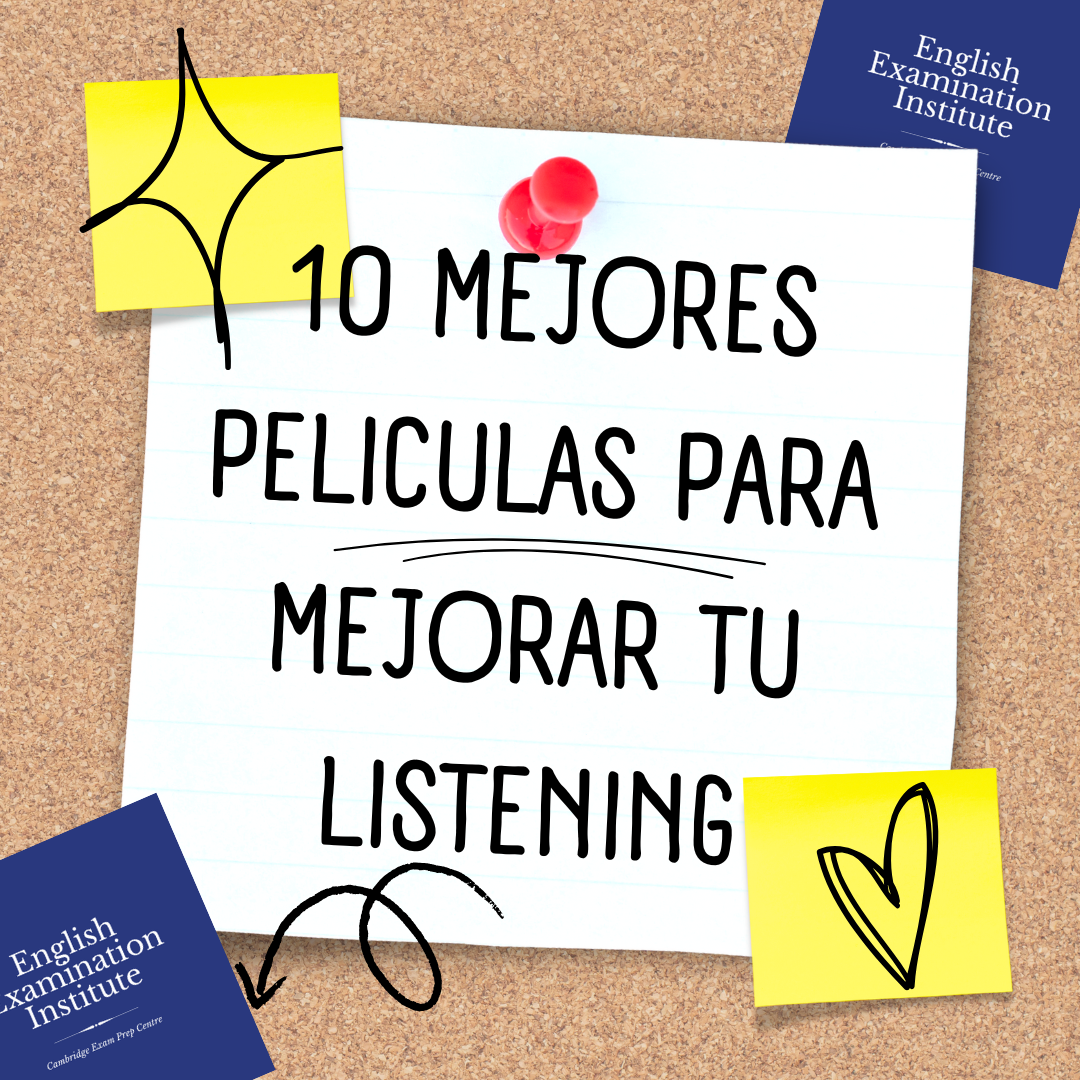Lista Definitiva 2025:
200 Phrasal Verbs para exámenes B2 First Certificate y C1 Advanced y C2 Proficiency de Cambridge
200 Phrasal Verbs para B2 (FCE) C1 (CAE) C2(CPE) Cambridge

Índice Lista definitiva Phrasal Verbs para Exámenes Cambridge
Phrasal verbs que empiezan con A
Phrasal verbs que empiezan con B
Phrasal verbs que empiezan con C
Phrasal verbs que empiezan con D
Phrasal verbs que empiezan con E
Phrasal verbs que empiezan con F
Phrasal verbs que empiezan con G
Phrasal verbs que empiezan con H
Phrasal verbs que empiezan con I
Phrasal verbs que empiezan con J
Phrasal verbs que empiezan con K
Phrasal verbs que empiezan con L
Phrasal verbs que empiezan con M
Phrasal verbs que empiezan con N
Phrasal verbs que empiezan con O
Phrasal verbs que empiezan con P
Phrasal verbs que empiezan con Q
Phrasal verbs que empiezan con R
Phrasal verbs que empiezan con S
Phrasal verbs que empiezan con T
Phrasal verbs que empiezan con U
Phrasal verbs que empiezan con V
Phrasal verbs que empiezan con W
Phrasal verbs que empiezan con X
Phrasal verbs que empiezan con Y
Phrasal verbs que empiezan con A
Act out
- The teacher asked the students to act out the dialogue. (Representar algo con acciones.)
- He started acting out when he felt ignored. (Comportarse de forma rebelde.)
Act up
- My phone is acting up again. (Funcionar mal.)
- The children always act up during long trips. (Portarse mal.)
Add in
- Add in some sugar for extra sweetness. (Agregar algo.)
- She decided to add in a few more questions to the survey. (Incluir.)
Add up
- These expenses add up quickly. (Sumar.)
- His story doesn’t add up. (Tener sentido.)
Agree on
- We finally agreed on a price. (Ponerse de acuerdo en algo.)
- They couldn’t agree on where to go for dinner. (Estar de acuerdo sobre algo.)
Aim at
- The campaign is aimed at young people. (Dirigirse a un grupo o público.)
- He aimed at improving his skills. (Esforzarse por algo.)
Ask for
- She asked for a coffee. (Pedir algo.)
- I didn’t ask for your opinion. (Solicitar algo.)
Phrasal verbs que empiezan con B
Back off
- Back off! This is none of your business. (Alejarse o retirarse.)
- The company backed off from the deal. (Desistir de algo.)
Back up
- I’ll back you up in the meeting. (Apoyar a alguien.)
- Remember to back up your files. (Hacer una copia de seguridad.)
Bail out
- The government bailed out the struggling bank. (Rescatar financieramente.)
- He bailed out of the competition at the last minute. (Abandonar algo.)
Be about
- This book is about a famous artist. (Tratar de algo.)
- He is about to leave. (Estar a punto de.)
Beat up
- He was beaten up by a gang. (Golpear a alguien.)
- That old car looks really beat up. (Deteriorado.)
Bite off
- He bit off a piece of the apple. (Morder algo.)
- She bit off more than she could chew with that project. (Asumir más de lo que puede manejar.)
Blow away
- The wind blew away the papers. (Llevarse algo por el viento.)
- His performance blew me away. (Impresionar mucho.)
Blow out
- She blew out the candles. (Apagar soplando.)
- The car’s tire blew out on the highway. (Reventar.)
Blow over
- The storm will blow over soon. (Pasar o desaparecer.)
- Their argument will blow over in a few days. (Ser olvidado rápidamente.)
Blow up
- The bomb blew up unexpectedly. (Explotar.)
- He blew up when he heard the bad news. (Enojarse mucho.)
Break away
- She tried to break away from bad habits. (Liberarse.)
- The team broke away from the main group. (Separarse.)
Break down
- My car broke down on the way home. (Dejar de funcionar.)
- She broke down in tears. (Derrumbarse emocionalmente.)
Break in
Someone tried to break in last night. (Forzar la entrada.)
He broke in the conversation suddenly. (Interrumpir.)
Break out
- A fire broke out in the building last night.
- He broke out in a rash after eating peanuts.
- **Significado:** estallar, aparecer repentinamente
Break through
- - The sun finally broke through the clouds.
- - She managed to break through her fears and give the speech.
- **Significado:** abrirse paso, superar dificultades
Break up
- - The police broke up the fight before anyone got hurt.
- - The signal kept breaking up during the call.
- **Significado:** dispersar, interrumpirse
Bring about
- - The new law will bring about significant changes in education.
- - His carelessness brought about the accident.
- **Significado:** provocar, causar
Bring in
- - The company brought in a new manager to improve efficiency.
- - The new project brought in a lot of revenue.
- **Significado:** introducir, generar
Bring up
- - She brought up an interesting question during the meeting.
- - He was brought up in a small town. (mencionar, criar
Brush off
- - He brushed off my concerns about the project.
- - She brushed off the dust from her jacket.
- **Significado:** ignorar, limpiar
Brush up
- - I need to brush up on my grammar before the test.
- - He brushed up his public speaking skills before the event.
- **Significado:** repasar, mejorar
Burn out
- - Working too much can burn you out quickly.
- - The firefighters controlled the blaze before the house burned out.
- **Significado:** agotarse, consumirse
Burn up
- - The meteor burned up upon entering the atmosphere.
- - His rude comments really burned me up.
- **Significado:** incinerarse, enfurecer
Phrasal verbs que empiezan con C
call in
- You need to call in advance.
- They decided to call in sick. llamar (por teléfono), pedir asesoramiento
call off
- The game was called off due to rain.
- They had to call off the search when darkness fell. cancelar, suspender
call out
- She called out his name from across the room.
- The coach called out the play. llamar, gritar
call up
- I’ll call up the restaurant and make a reservation.
- He was called up for military service. llamar, convocar
calm down
- Calm down, everything will be okay.
- He had to calm down before he could speak. calmar, tranquilizarse
carry on
- Despite the difficulties, we decided to carry on.
- Carry on with your work, don’t let me interrupt you. continuar, seguir
catch on
- He’s slow to catch on to new trends.
- The new fashion quickly caught on among teenagers. darse cuenta, hacerse popular
catch up
- We need to catch up soon, it’s been too long!
- I need to catch up on my homework this weekend. ponerse al día, alcanzar
check in
- We need to check in before 8 pm.
- I’ll check in with you tomorrow to see how you’re doing. registrarse, llamar para confirmar
check out
- We need to check out of the hotel before midday.
- You should check out that new movie, it’s great! salir, revisar
cheer up
- Cheer up, things will get better soon!
- She bought me a gift to cheer me up. animar, alegrar
chill out
- After a long day at work, I just want to chill out.
- You’re overreacting, you need to chill out. relajarse, calmarse
chip in
- Everyone chipped in to buy a gift for the boss.
- I don’t have enough money for the bill. Can you chip in? contribuir, cooperar
chip off
- The paint chipped off the wall.
- He chipped off a piece of wood. desprenderse, quitar un trozo
clean up
- Can you help me clean up after the party?
- The oil spill took months to clean up. limpiar, ordenar
clear out
- I’m planning to clear out the garage this weekend.
- Everyone clear out of the room, we need to clean. limpiar, vaciar
clear up
- The sky cleared up after the storm.
- Can you clear up this misunderstanding? aclararse, resolver, limpiar
close down
- The factory had to close down due to new regulations.
- The police closed down the illegal gambling operation. cerrar, clasurar
come about
- How did such a misunderstanding come about?
- The opportunity came about unexpectedly. ocurrir, surgir
come across
- I came across my old diary while cleaning the attic.
- He comes across as a bit arrogant at times. encontrar, toparse con
come along
- Are you coming along to the party?
- How is your project coming along? acompañar, avanzar
come down
- The rain started to come down heavily.
- The decision will come down to what the committee thinks. bajar, caer
come in
- Please come in and have a seat.
- They were late to come in the party. entrar
come up
- A good job opportunity has come up for me.
- Please come up to my office when you arrive. subir, surgir
cool down
- You should let the engine cool down before checking the oil.
- She needs some time to cool down before we talk. enfriarse, calmar
cope with
- How do you cope with stress?
- She’s coping well with the changes. lidiar con, manejar
count on
- You can always count on me for support.
- We’re counting on this deal to go through. contar con, depender de
cross off
- Cross off the items on the list.
- She crossed him off her friend list. tachar
cross out
- Cross out the wrong answers.
- Her name was crossed out from the list. tachar, cruzar
cut back
- We need to cut back on spending.
- They cut back the trees to let more light in. reducir, recortar
cut off
- The phone was cut off in the middle of our conversation.
- They had to cut off the water supply to fix the pipes. cortar, interrumpir
Phrasal verbs que empiezan con D
deal out
- She dealt out the cards for a game of poker.
- Life has dealt out a fair share of challenges to him. repartir
deal with
- I don’t want to deal with this problem right now.
- How do you deal with difficult customers? tratar con, lidiar con
die down
- The noise finally died down after midnight.
- We waited for the storm to die down before we went outside. disminuir, calmarse
die out
- The fire slowly died out.
- His hopes died out after the rejection. extinguirse, desvanecerse
do in
- She did in her opponent.
- I’m feeling completely done in. acabar con, agotar
do up
- He did up his shoelaces.
- They plan to do up the old house and sell it. abrochar, decorar
draw in
- The bus drew in and stopped.
- The painting drew her in. acercarse, atraer
draw up
- The lawyer will draw up the contract.
- They drew up a list of all the items needed. elaborar, redactar
dress down
- It’s a casual event, so you can dress down.
- The boss dressed him down for his poor performance. vestirse informalmente, reprender
dress up
- We need to dress up for the formal event.
- The children love to dress up for Halloween. vestirse elegantemente, disfrazarse
drop by
- Drop by anytime you are in the neighborhood.
- I’ll drop by your office in the afternoon. visitar, pasar por
drop off
- Can you drop me off at the airport?
- I need to drop off these packages at the post office. dejar, llevar
drop out
- He dropped out of school at 16 to start working.
- Several players dropped out of the tournament due to injuries. abandonar, desertar
dry up
- The lake will dry up if we don’t get any rain soon.
- The conversation dried up after their argument. secarse, acabarse
Phrasal verbs que empiezan con E
eat in
- Let’s eat in tonight.
- They prefer to eat in rather than out. cenar en casa, comer dentro
eat out
- We usually eat out on Fridays.
- Let’s eat out tonight, I don’t feel like cooking. comer fuera
eat up
- Eat up, we have a long day ahead.
- The picnic food was quickly eaten up. comer todo
end up
- If you don’t study, you might end up failing the course.
- They ended up at a charming little cafe. acabar, terminar
Phrasal verbs que empiezan con F
face up to
- You need to face up to your responsibilities.
- He couldn’t face up to the truth. enfrentar, aceptar
fade out
- The music slowly faded out at the end of the scene.
- The actor’s fame has faded out over the years. desvanecerse, desaparecer
fall apart
- The plan fell apart at the last minute.
- The old book fell apart when I tried to read it. desmoronarse, desintegrarse
fall back
- When in doubt, fall back on your training.
- The team fell back to defend. retroceder, replegarse
fall for
- She fell for his charms.
- I can’t believe you fell for that trick. enamorarse de, caer en la trampa
fall out
- They fell out over money issues.
- He had a fall out with his brother and they haven’t spoken since. discutir, pelear
fall through
- Our plans for the trip fell through.
- The deal fell through at the last minute. fracasar, no ocurrir
figure out
- I need to figure out how to fix this problem.
- It took me a while to figure out the puzzle. resolver, comprender
fill in
- Could you fill in this form, please?
- She filled me in on the latest gossip. completar, informar
fill out
- Please fill out this application form.
- It took me an hour to fill out the paperwork. completar, rellenar
fill up
- Can you fill up my glass, please?
- The gas tank is filled up. llenar, abastecer
find out
- I need to find out what time the train leaves.
- She found out that he had been lying to her. descubrir, averiguar
Phrasal verbs que empiezan con G
get across
- I’m struggling to get my point across.
- We need to get across the river before dark. transmitir, cruzar
get along
- I get along well with my colleagues.
- Do your children get along? llevarse bien
get back
- I need to get back home before it gets dark.
- She finally got her book back. regresar, recuperar
get by
- I can get by with my Spanish when I travel.
- How do you get by on such a small salary? arreglárselas
get off
- We need to get off at the next stop.
- She got off the bus just in time. bajar, desembarcar
get on
- Could you help me get on the horse?
- How are you getting on in your new job? subir, progresar
get over
- It took him a while to get over the breakup.
- She finally got over her cold. superar, recuperarse
give away
- He gave away most of his fortune to charity.
- Don’t give away the end of the movie! regalar, revelar
give back
- He gave back the keys.
- We should give back to our community. devolver, retribuir
give in
- She gave in to temptation and ate the cake.
- After hours of debate, he finally gave in. rendirse, ceder
give in to
- She gave in to their demands.
- Don’t give in to peer pressure. ceder ante, sucumbir a
give off
- The flowers give off a pleasant aroma.
- The machine gives off smoke. emitir, desprender
give up
- I won’t give up, I’ll keep trying.
- She gave up smoking a year ago. rendirse, dejar
go ahead
- Go ahead, I’m listening.
- You can go ahead and start without me. continuar, proceder
go back
- We need to go back, I forgot my wallet.
- She went back to her home town after the divorce. regresar, volver
go off
- The alarm went off at 6 AM.
- The milk has gone off. sonar, estropearse (alimento)
go on
- The show must go on.
- What’s going on here? continuar, ocurrir
go over
- Let’s go over our plans one more time.
- She went over the report to make sure there were no errors. repasar, revisar
grow up
- I grew up in a small town.
- It’s time to grow up and take responsibility. crecer, madurar
Phrasal verbs que empiezan con H
hand out
- The teacher handed out the worksheets.
- They are handing out free samples. repartir, distribuir
hand over
- Hand over your homework at the end of class.
- The criminal was forced to hand over his weapon. entregar
hang around
- We used to hang around after school.
- Don’t hang around here, it’s not safe. pasar el tiempo
hang out
- We used to hang out at the park after school.
- Do you want to hang out this weekend? pasar el tiempo, quedar
hang up
- I didn’t mean to hang up on you, my phone died.
- She hung up before I could say anything. colgar
hold back
- She held back tears as she said goodbye.
- Don’t hold back, tell me what you really think. contener, retener
hold on
- Hold on, I’m almost there.
- Hold on to the railing while going down the stairs. esperar, agarrar
Phrasal verbs que empiezan con I
Iron out
- We need to iron out the details of the plan.
- They managed to iron out their differences. Resolver
Phrasal verbs que empiezan con J
jump in
- Sorry to jump in, but I have a comment.
- The pool is warm, jump in! interrumpir, entrar rápidamente
jump out
- The cat jumped out from behind the sofa.
- The bright red color jumps out against the white background. saltar, sorprender
Phrasal verbs que empiezan con K
keep away
- Keep away from the fire, it’s dangerous.
- The sign said, «Keep away from the edge». mantener alejado
keep on
- Keep on working, you’re doing great.
- He kept on talking despite our attempts to interrupt. continuar, seguir
keep up
- I can’t keep up with all these changes.
- She walks so fast, it’s hard to keep up. mantener el ritmo
kick off
- The meeting will kick off at 10 am.
- The game kicks off in one hour. empezar, iniciar
knock down
- The old building was knocked down to make way for a park.
- She was knocked down by a speeding car. derribar, desmantelar
knock out
- The boxer managed to knock out his opponent in the first round.
- I was knocked out after the long hike. noquear, agotar
Phrasal verbs que empiezan con L
lay off
- They had to lay off a lot of workers due to budget cuts.
- Lay off me, I’m trying to work. despedir, dejar en paz
let down
- I won’t let you down.
- He felt let down by his friends. decepcionar, defraudar
let go of
- She finally let go of her past.
- You need to let go of your anger. soltar, dejar ir
light up
- Her smile lights up the room.
- Smoking is bad for your health, don’t light up. iluminar, encender un cigarrillo
log in
- Log in to your account to check your messages.
- I can’t log in, I forgot my password. iniciar sesión
log out
- Remember to log out when you finish your work.
- He logged out of his email account. cerrar sesión
look after
- Can you look after my dog while I’m away?
- She looks after her younger brother. cuidar, atender
look back
- When I look back, I feel I could have done things differently.
- Looking back, I see how much I’ve grown. recordar, repasar
look for
- I’m looking for my glasses, have you seen them?
- She’s looking for a job. buscar
look forward to
- I’m looking forward to the weekend.
- We look forward to your visit. esperar con ansias
look into
- We will look into the matter and inform you about our findings.
- The police are looking into the incident. investigar
look out for
- Look out for pedestrians while driving.
- They always look out for each other. cuidarse de, estar atento a
look up
- You can look up the word in the dictionary.
- I looked up the address on the internet. buscar, consultar
Phrasal verbs que empiezan con M
make over
- She made over her old clothes into something fashionable.
- The house needs a complete makeover. renovar, transformar
make up
- He made up an excuse for being late.
- She takes too much time to make up in the morning. inventar, maquillarse
mix up
- I always mix up the twins’ names.
- She mixed up the ingredients for the cake. confundir, mezclar
move in
- They are planning to move in next week.
- When are your new roommates moving in? mudarse
move on
- It’s time to move on from this issue.
- Let’s move on to the next topic. seguir adelante, pasar a
move out
- She decided to move out and live on her own.
- The tenants were asked to move out immediately. mudarse, desalojar
Phrasal verbs que empiezan con P
pass away
- His grandfather passed away last night.
- The famous author passed away at the age of 89. fallecer
pass out
- He passed out from exhaustion.
- Please pass out these papers to everyone in the room. desmayarse, distribuir
pick up
- Can you pick up some groceries on your way home?
- She picked up a few German phrases while staying in Berlin. recoger, aprender
play down
- He tried to play down his mistakes.
- The government played down the impact of the crisis. restar importancia
pull off
- It was a difficult task, but she pulled it off.
- He pulled off a great performance despite being unwell. lograr, conseguir
pull over
- The police officer signaled for him to pull over.
- I had to pull over to check the map. detener el coche
put away
- Put away your toys before dinner.
- He put away his savings for retirement. guardar, guardar (en su lugar), recoger
put off
- We had to put off the meeting until next week.
- Don’t be put off by the negative reviews, the book is really good. posponer, desalentar
put on
- She put on her coat and left.
- They are putting on a show next week. ponerse, colocar
put up with
- I don’t know how she puts up with his behavior.
- I can’t put up with the noise anymore. tolerar, soportar
Phrasal verbs que empiezan con R
rip off
- That shop rips off tourists with high prices.
- He accidentally ripped off the poster while cleaning. estafar, arrancar
roll out
- The company is rolling out a new product line.
- They rolled out the red carpet for the celebrity. desplegar, lanzar
round up
- The shepherd rounded up the sheep before nightfall.
- Can you round up the team for a meeting? redondear, reunir
run away
- The thief ran away when he saw the police.
- The circus lion ran away from its cage. escapar, huir
run by
- Can I run a few ideas by you?
- I’ll run the plan by the team tomorrow. consultar, informar
run into
- I ran into an old friend at the supermarket.
- We ran into some problems with the project. encontrarse con, tropezar con
run out
- We’ve run out of milk.
- Time is running out, we need to make a decision. agotarse, acabarse
run over
- The car ran over a pothole.
- Can you run over the main points? atropellar, repasar
Phrasal verbs que empiezan con S
set aside
- I set aside some money for emergencies.
- We should set aside our differences and work together. apartar, reservar
set off
- They set off on their trip early in the morning.
- The fire alarm was set off by the smoke. empezar un viaje, provocar
set out
- They set out on a journey around the world.
- She set out her plans for the day. comenzar, emprender
set up
- We set up a tent for the night.
- They are setting up a new company. instalar, organizar
show up
- She didn’t show up for the meeting.
- A strange cat showed up at our door. aparecer, asistir
slip up
- Everyone slips up sometimes, don’t worry about it.
- We can’t afford to slip up on this project. equivocarse
stand by
- I will stand by you no matter what.
- The medical team is standing by for any emergencies. apoyar, permanecer listo
stand out
- Her red dress made her stand out in the crowd.
- This painting stands out in the gallery. destacar, resaltar
step in
- The teacher had to step in and stop the fight.
- The government needs to step in and help those in need. intervenir
step up
- We need to step up our efforts if we want to finish on time.
- She stepped up to take on the leadership role. aumentar, elevar
Phrasal verbs que empiezan con T
take in
- I tried to take in all the information.
- They decided to take in a foster child. absorber, aceptar
take off
- The plane will take off in 20 minutes.
- He took off his hat as he entered the room. despegar, quitarse
take over
- The new manager will take over next month.
- He took over the family business. tomar el control de, hacerse cargo de
take up
- She decided to take up yoga.
- This couch takes up too much space. empezar a practicar, ocupar
tear up
- She tore up the letter and threw it away.
- I accidentally tore up the concert tickets. romper en pedazos
think over
- I need to think over your proposal before making a decision.
- She thought over the job offer for several days. considerar, reflexionar
throw away
- Don’t throw away this receipt, we might need it.
- I had to throw away the spoiled milk. tirar, descartar
try on
- Try on this dress, it looks good on you.
- He tried on several pairs of shoes before deciding on one. probarse
turn away
- The doorman turned away the uninvited guest.
- She turned away from the mirror. rechazar, apartar la vista
turn down
- She turned down the job offer.
- Could you turn down the music? I’m trying to study. rechazar, bajar
turn off
- Please turn off the lights when you leave.
- This button is used to turn off the machine. apagar, desactivar
turn on
- Can you turn on the radio?
- I turned on the computer to start working. encender, activar
turn up
- He didn’t turn up for his appointment.
- Can you turn up the volume? I can’t hear the TV. aparecer, subir
Phrasal verbs que empiezan con U
use up
- We’ve used up all the milk.
- The car uses up a lot of fuel. usar completamente
Phrasal verbs que empiezan con W
wait on
- She’s waiting on her exam results.
- The waiter is trained to wait on customers efficiently. servir, esperar
wake up
- I wake up at 7 am every day.
- The noise woke me up. despertar, despertarse
wake up to
- She woke up to the sound of birds singing.
- He finally woke up to the truth. despertar(se) ante, darse cuenta de
walk away
- He just walked away without saying a word.
- She could simply walk away from the deal. alejarse, irse
wash up
- Wash up before dinner.
- Who’s going to wash up the dishes? lavarse, lavar los platos
watch out
- Watch out for pickpockets in the area.
- You should watch out, the floor is slippery. tener cuidado
wipe out
- The virus could wipe out the entire population.
- He was so tired, he wiped out as soon as he got home. eliminar, extinguir
work out
- I work out at the gym three times a week.
- I hope everything works out for you. hacer ejercicio, resolver
work up
- She worked up the courage to ask for a raise.
- He needs to work up an appetite. generar, desarrollar (sentimientos, apetito, etc.)
wrap up
- Let’s wrap up the meeting, we’re running out of time.
- She wrapped up the gift in colorful paper. envolver, concluir
write down
- Write down the recipe so you don’t forget it.
- He wrote down the address on a piece of paper. escribir, anotar
write off
- The car was a write off after the accident.
- They had to write off their investment. dar por perdido
Phrasal verbs que empiezan con Z
zone out
- I zoned out during the meeting and missed the important points.
- She tends to zone out when she’s tired. desconectar, perder la concentración
Conclusión
Espero que esta lista de 200 phrasal verbs con ejemplos en inglés y español te haya resultado útil y te haya ayudado a mejorar tu comprensión en este tema. Recuerda que practicar con frecuencia es la clave para dominar estas estructuras verbales. Si tienes alguna duda, no dudes en dejarnos un comentario y con gusto te ayudaremos a resolverla. ¡Sigue aprendiendo y mejorando tu inglés!














